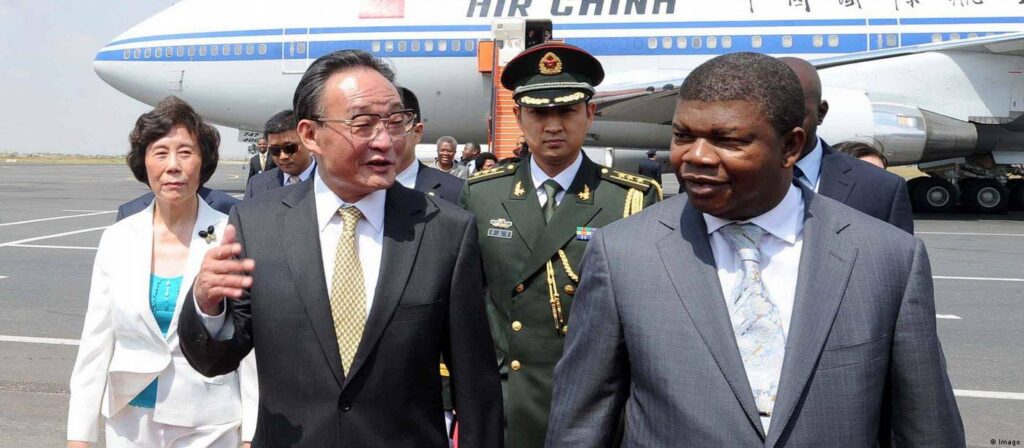You are here:
Início » Public Debt » Angola: “Debts with China were misapplied”
February 20, 2026 0:43
Latest update:September 16, 2023
Angola: "Debts with China were misapplied"

Angola is the African country that has received the most loans from China over the last 20 years, according to data from Chatham House – United Kingdom’s Royal Institute of International Affairs.
In an interview with DW Africa, economist Carlos Rosado states that Angola has always depended and will depend on China, and says that despite the volume of debts, it is not possible to see where the money was applied. The Analyst also warns that the Angolan Government needs to find other sources of financing and other payment guarantees other than oil.
DW Africa: Why did the Angolan state not take care of the accumulation of debts during all these years?
Carlos Rosado (CR): It is known that Angola has depended on China for funding for a long time. The first loan was in 2004, Angola turned to China because it did not accept the conditions that were imposed by other financiers, namely the Paris Club. China, having a policy of non-interference in the internal affairs of other countries, has granted loans without making many demands. In the case of Angola, it was a perfect match because on one side there was a country that needed money on loan and had oil as collateral, and on the other, China that had money to lend and needed oil.

Economist and journalist Carlos Rosado de Carvalho. Source: dw.com. Photo: DW/J.Beck
DW Africa: But in this marriage Angola ended up single. Indebted, owing more to China than Ethiopia, Zambia and Kenya combined. To what extent are these debts sustainable?
CR: Debts should not be demonized, the problem is that you don’t see where the money was applied. This is the big question, naturally all countries take on debts for investments in infrastructure and development projects, but in the end it works. In Angola, despite the volume of loans, which are around US$50 billion over twenty years, it is still questionable how these values were used. In fact, it is known that much of the money from these loans was embezzled. One of the major apprehensions made in the context of the fight against corruption has precisely to do with business with China, where it is Angola that borrows the money, but the benefits end up in the hands of the private sector. Angola was harmed because it did not make good use of the money, it was left with debts. We are at a stage where the Angolan state needs to diversify its funding sources and be less dependent on China.

Angola is the African country that received the most loans from China. Photo: N. Camuto/DW
DW Africa: One of the purposes of João Lourenço’s second term is to try to pay or relieve debts, do you think it’s possible for the state not to get into even more debt?
CR: I assume that Angola will continue to borrow from China. It will continue to need funding, and one of the alternatives is China. Although I think it should change its strategy and try not to get into debt in exchange for oil. It remains to be seen whether China will continue to grant loans even without black gold as collateral. But I think the time has also come for Angola to diversify its funders.
Access Counter:
PUBLIC TRANSPARENCY PORTAL – ANGOLA
Providing access to information
Municipality of Talatona, Urban District of Benfica, Estrada Lar do Patriota, Rua V, Travessa II, n.º 584-A
Postal Address: Brito Godins Postal Station, Bairro Kinaxixi, Correios de Angola, PO Box n.º 10196, Luanda – Angola
Contact phone: +244 934 035 233
COPYRIGHT © 2022 – THE PUBLIC TRANSPARENCY PORTAL IS PROPERTY OF PRO BONO ANGOLA® – ALL RIGHTS RESERVED. DEVELOPED BY 15INTELLIGENCE


